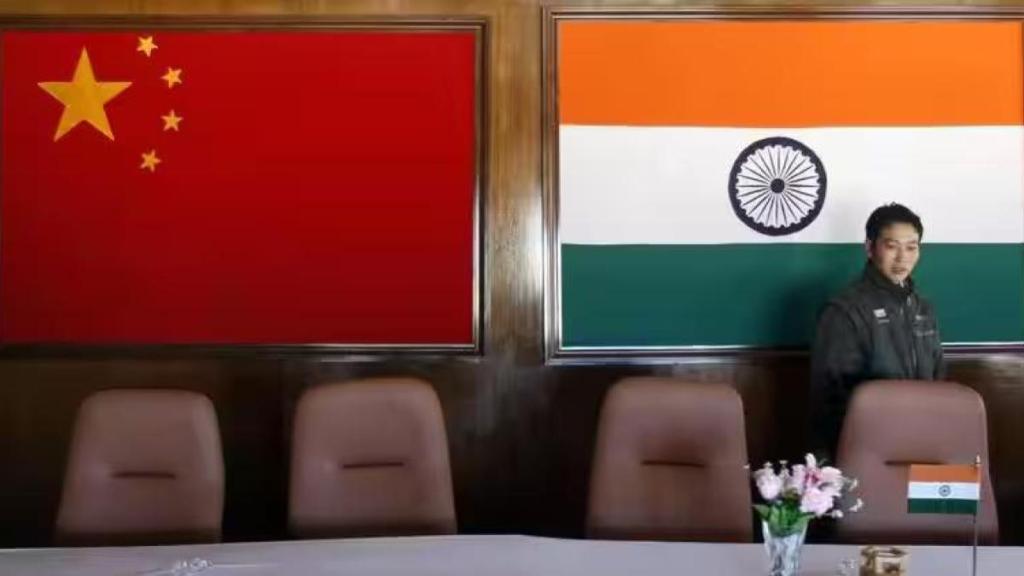By Group Captain Praveer Purohit (retd)
International relations have usually been in flux, characterised by conflict, competition, and challenges between nations seeking to preserve the prevalent order and those seeking to overthrow it. Caught amidst this ‘power rivalry’ are many states that prefer peace, development and emancipation from poverty. Choosing sides for these countries is difficult and often comes with antagonising some big power or the other. The Non-Aligned Movement (N.A.M.), formed on September 01, 1961, was an organisation that sought to retain some elbow room for the less privileged developing countries in the harsh world of geopolitics during the Cold War. Another compact comprising 77 developing countries (called the G-77) was formed under the auspices of the United Nations (U.N) on June 15, 1964. In its 60-year existence, it has grown to become the largest intergovernmental organization of developing countries in the U.N., now including 134 countries, comprising almost 80% of the global population.
Lately, the term ‘G-77’ seems to have been increasingly replaced by the term ‘Global South.’ Many world leaders, including the U.N Secretary General, the U.S. President, the Indian PM and the World Bank (W.B.) President, amongst many, has used this term. The inevitable questions that arise are- “Is this a new organization?”, “Has it replaced the G-77”?, “Is the term a newly coined one”? Well, the answer to all these questions is “NO.” The term ‘Global South’ was coined by Carl Ogelsby, an American writer, in 1969. The G-77 is a U.N.-sanctified organisation, while the Global South is just a term that has made a linguistic comeback. There is no clear definition of the Global South and no clarity on who forms part of it, although some argue that it essentially comprises the G-77 countries. Complicating this maze is that although China is not a member of G-77, it considers itself part of the Global South! And it has made no bones about its intent to seek leadership of the Global South. Since independence, India has consistently championed the cause of developing nations and thus assumed a quasi-leadership role. China’s intent has opened another dimension in the strategic rivalry between India and China. The playground now includes influence and leadership in the so-called ‘Global South.’
As part of India’s outreach, it hosted two ‘Voice of the Global South Summits’ (VOGSS) in 2023 and a third on August 17 this year. China was not invited to any of these summits. Displeased at its exclusion, a series of articles and commentaries appeared in Chinese media and academic circles on the issue. An article in the often-vitriolic Global Times voiced why a Global South sans China was fallacious or a ‘pseudo-proposition’. Reading the Chinese discourse reveals the liberal twisting of facts and a mix of misinformation and disinformation. Riled at excluding China, an academic from the China Academy of Social Sciences blamed the West for political manipulation and using VOGSS as a political weapon to divide developing countries. Using the differences and inchoateness in defining the Global South, China has sought to include itself in the Global South, claiming it is a ‘developing nation’. Chinese analysts have accused India of toeing the West and trying to contain its rise. Reacting to the latest VOGSS, a commentator on the Chinese media platform Sohu, by highlighting China’s noteworthy placement in economy, technology, and markets, suggested that China’s exclusion would blunt the effectiveness of the summit. Criticising India for seeking to lead the Global South, Zhang Jiadong, director of the Centre for South Asian Studies at Fudan University, claimed that China’s status was irreplaceable for the Global South.
The Chinese narrative doubts India’s ability and credentials to be the voice of the Global South. Firstly, China emphasises the huge differential in the economic and technological capabilities between the two countries. Second, the Chinese underline the ‘moral’ angle. Accusing India of being ‘opportunistic,’ Chinese scholars have argued that the Chinese methodology of “win-win” partnerships with “mutual benefits” and “harmonious coexistence” morally empowers China to represent the Global South. China’s ‘generosity’ in accommodating India in the Shanghai Cooperation Organisation (SCO) and BRICS (both China-centric organisations) has been cited to support the above proposition. The Chinese narrative paints itself as a magnanimous player while portraying India as self-indulgent and power-hungry, which prefers competition to cooperation. PM Modi’s skipping of two NAM summits in 2016 and 2019 has been used to propagate a narrative of India’s disinterest in the well-being of developing countries and an alignment with the West. Ridiculous claims have been made of India turning into a “pawn” of the West. Obviously, such narratives are targeted at Sinophiles globally and repudiate India’s claims of being wedded to strategic autonomy.
The competition between India and China has extended into multiple domains. China has long resorted to ‘Unrestricted Warfare’ against its adversaries, India being no exception. Deceit and debauchery are characteristic of the Chinese approach to spinning narratives. Invariably, these narratives hype the Chinese ‘virtues’, exhort developing countries to support the ‘China dream’ , promise developing countries a better future, castigate the West and label Japan, India, Taiwan, South Korea and Australia as “pro-West” and “having no agency of their own”. Clearly, India’s rising international stature and acceptability amongst the developed and developing nations have rattled the Chinese. The factory of lies and half-truths in China will continue to spin narratives of India’s partnerships with advanced countries as being detrimental to the interests of the Global South. Being aware of these and countering them is critical. Our think tanks, academia, geopolitical and security analysts have their tasks cut out.
The author served in the Indian Air Force for over 32 years. He writes extensively on geopolitics, international relations and defence issues. His X (formerly Twitter) handle is @aparagonpilot
Disclaimer: Views expressed are personal and do not reflect the official position or policy of Financial Express Online. Reproducing this content without permission is prohibited.


